
Education
Learners with disability have the right to an education that develops their skills and capabilities. Very young children, school-goers and tertiary students can all benefit from a good education. In addition, you can look at short courses and consider further studies that suit you, no matter what your age.
Students with disability have the right to access and participate in education on the same basis as students without disability. Find out more about the Disability Standards for Education 2005 on the Department of Education website.
Hi, I'm Ben.
And I'm Claudia.
Today we'll be talking about the area of life that relates to education.
People with disability should be able to get the same education as everyone else, and that means everyone from young children, children at school and adults.
An education is important because it can help you learn new things and develop new skills that can help you in life.
Early childhood education for most young children is one year before they go to primary school.
Young children with disability can get their early childhood education at home, a childcare centre, a preschool or kindergarten.
You might need help with early childhood intervention which is a program that support young children with disability.
Support or services for families that have young children with disability may also be needed.
Resources for teachers and childcare workers are also available.
You can find more information about these supports on the Early childhood education page.
When it comes to primary school, most children start school when they are six years old or over.
It's important that children with disability have access to education and take part in classroom activities.
To achieve this, you might need supports or services for families that have children with disability.
Teachers and support staff will also need the best resources.
Information about getting ready for university, TAFE or work, and the rights of students with disability, is also information you'll need.
You can find more info about these supports and resources on the Primary school and high school page.
When you finish high school, you might choose to go to uni or TAFE.
If you do, you can find information for students with disability, education and training providers, such as teachers or trainers, along with information about the rights of students with disability.
Find out more on the University and TAFE programs page.
If you would like to know more about how we can assist in education, please contact the Disability Gateway on 1800 643 787.
This section provides links to services and information on:
Early childhood education
Options for appropriate early childhood education
Primary and high school
Your rights and options to suit people with disability
Tertiary education
University and vocational training programs

Education
Hi, I'm Ben.
And I'm Claudia.
Today we'll be talking about the area of life that relates to education.
People with disability should be able to get the same education as everyone else, and that means everyone from young children, children at school and adults.
An education is important because it can help you learn new things and develop new skills that can help you in life.
Early childhood education for most young children is one year before they go to primary school.
Young children with disability can get their early childhood education at home, a childcare centre, a preschool or kindergarten.
You might need help with early childhood intervention which is a program that support young children with disability.
Support or services for families that have young children with disability may also be needed.
Resources for teachers and childcare workers are also available.
You can find more information about these supports on the Early childhood education page.
When it comes to primary school, most children start school when they are six years old or over.
It's important that children with disability have access to education and take part in classroom activities.
To achieve this, you might need supports or services for families that have children with disability.
Teachers and support staff will also need the best resources.
Information about getting ready for university, TAFE or work, and the rights of students with disability, is also information you'll need.
You can find more info about these supports and resources on the Primary school and high school page.
When you finish high school, you might choose to go to uni or TAFE.
If you do, you can find information for students with disability, education and training providers, such as teachers or trainers, along with information about the rights of students with disability.
Find out more on the University and TAFE programs page.
If you would like to know more about how we can assist in education, please contact the Disability Gateway on 1800 643 787.
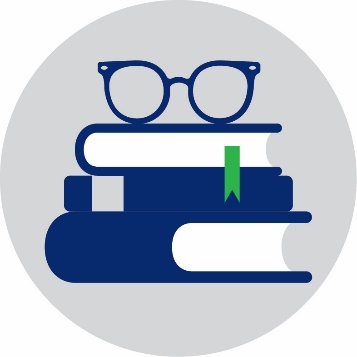 | In this Area of Life we talk about education. |
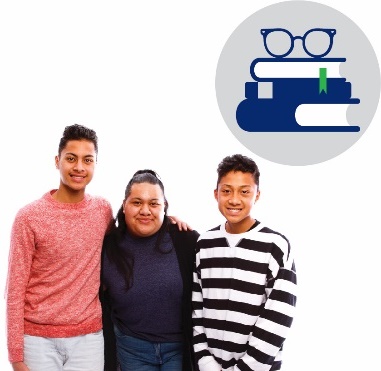 | People with disability should be able to get the same education as everyone else, including:
|
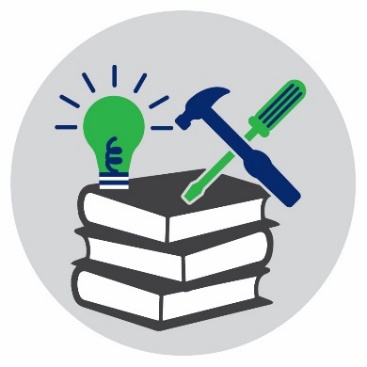 | An education can help you:
|
| This section has information about: | |
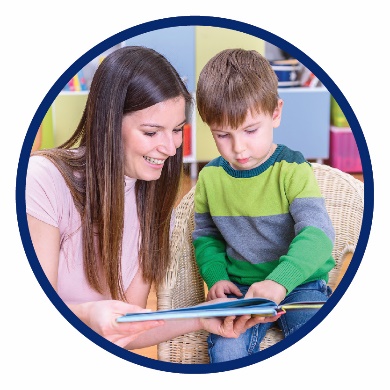 | Early childhood educationOptions to suit your child’s needs. |
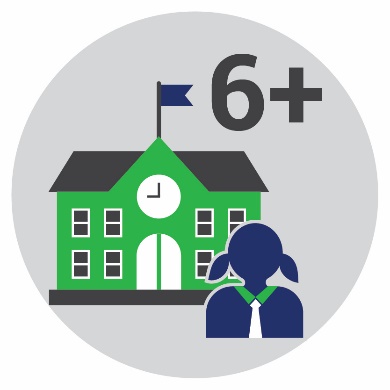 | Primary and high schoolYour rights and options to suit your child’s needs. |
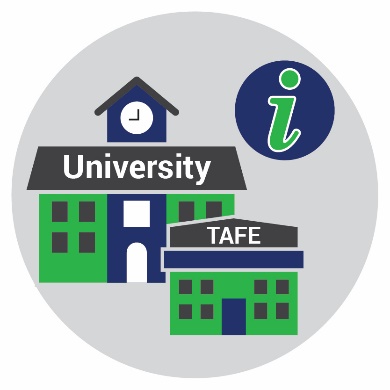 | University and TAFE programsOptions for further study or training after high school. |
Key supports
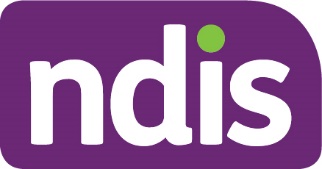 | The National Disability Insurance Scheme (NDIS) supports people with disability. If you want help with the NDIS, you can call them on 1800 800 110 |
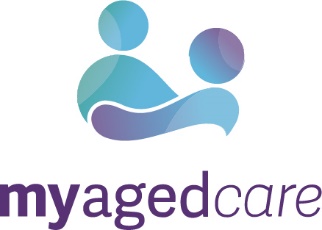 | My Aged Care supports older people. You can call My Aged Care on 1800 200 422 |
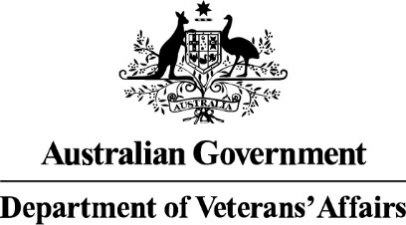 | The Department of Veterans’ Affairs supports veterans. We call this department DVA. A veteran is a person who served in the military. If you want help from DVA, you can call them on 1800 838 372 |
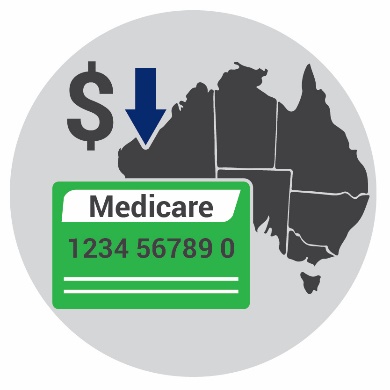 | Medicare is a program that gives all Australians health care at no cost or low cost. If you want help with Medicare, you can call them on 132 011 |
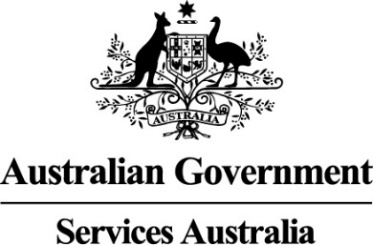 | Services Australia supports all Australians, including:
If you want help from Services Australia, you can call them on 132 717 |
 | The Carer Gateway supports families and carers who support another person. You can call the Carer Gateway on 1800 422 737 |
Head to Health can help you find information about mental health – for yourself or for someone you care about. You can visit the Head to Health website for more information. |
Key National Supports
You can also find information about the main types of support available in Australia. These are:
National Disability Insurance Scheme (NDIS), if you or someone you care for has disability
My Aged Care, if you or someone you care for is older
Department of Veterans’ Affairs, if you or someone you care for is a veteran
Carer Gateway, for people caring for someone with disability, a medical condition, mental illness or frail aged.
Australian Government, The Australian Government offers various support to families effected by the rising cost of living.
Services Australia, for Medicare / Centrelink / Child Support Services.
Head to Health can help you find mental health and wellbeing resources, for yourself or for someone you care about.
National Redress Scheme helps people access redress and can connect them to free confidential Redress Support Services.